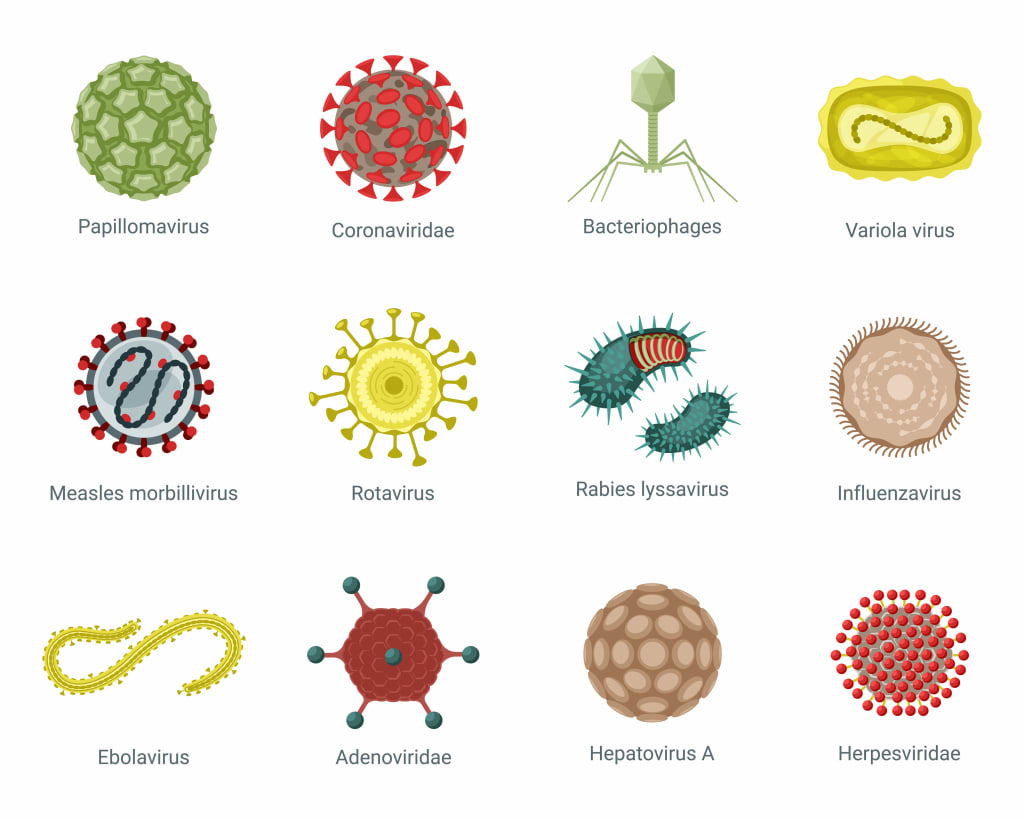On the Viability of Viruses
Three Questions

I was taught in undergrad and graduate school that viruses are not alive as they fail several of the key tests typically required for something to qualify as being alive. There are seven main characteristics biologists like myself generally agree that living organisms must possess. They are 1. The ability to respire. 2. The ability to grow 3. The ability to excrete (waste), 4. The ability to reproduce. 5. The ability to metabolize (nutrients for energy), 6. Movement. 7. Responsiveness to the environment.
Hopefully immediately you can see that these are common characteristics of living beings and that not all living beings exhibit all of them. A mule is an oft given example of an obviously living animal that does not reproduce. In contrast, viruses reproduce, but most biologists consider them not to be alive because they depend on other organisms for metabolism and replication. Most, is far from all however, and many other biologists of equal stature argue convincingly that viruses should be considered alive. There are fewer of these however and the current paradigm as taught in most biology courses today remains as it was in my time that viruses are not living beings.
Many, many others have argued that the seven criteria used by biologists are incomplete, incorrect, or both and have proposed a host of alternative "tests for life." It is interesting to note that some of the loudest voices in this debate are not actually biologists like myself, but thinkers from other fields of science. One example is a fascinating recent paper in the journal Heliyon from 2023 by Yunus A. Çengeli in which the author proposes eighteen criteria for life. Dr. Cengeli is a Professor in the Department of Mechanical Engineering at the University of Nevada, not a biologist, but, in my estimation, his paper is very good. In the introductory section to the paper he introduces his method and lists the eighteen criteria by saying
"Based on the careful analysis of everyday observations and experiences with the animate and inanimate beings, we identify the key characteristic features of life as follows: existence, subjectivity, agency, purposiveness and mission orientation, primacy and supremacy, naturality, field phenomenon, locality, transience, transcendence, simplicity, unicity, initiation, information processing, traits, code of conduct, hierarchy and nesting, and the aptitude to vanish."
The "careful analysis of everyday observations and experiences" is not exactly a scientific method, and this is not a scientific paper. Analysis of observations (data analysis) is only a part of the scientific method and no experiments are conducted or proposed to test the eighteen criteria. In fact that may not actually be possible. Since this is not a scientific paper per se what follows is ten pages of dense philosophical prose peppered with technical jargon and of course a host of caveats.
In the paper Dr. Cengeli does rightly go to great pains to distinguish between the manifestations of life on living beings and the nature of life itself. He lists 15 characteristics that he says are indicative of a living thing by writing
"Living beings are characterized by qualities such as adaptability to the environmental conditions, exploitation of the resources of their environment to sustain livelihood, diversity with the existence of millions of species, unicity of complex life forms by acting as one, autonomy in action and freedom of behavior, purposefulness in the functions performed, division of labor among constituents for biological functions, collaboration among the simpler life forms such as the cells and organs in the complex life forms or organisms, symbiosis among different life forms, such as trillions of bacteria in the human digestive system in a mutually beneficial way, growth into a full-fledged multi-cellular organism from a single cell, a highly structured organization among constituents, reproduction by making copies of themselves and perpetuating their species, unpredictability in behavior by the spur-of-the-moment decisions, rendering the set of the laws and forces of physics inadequate as a predictive tool, and the capability for self-healing and self-repairing
But, what about viruses? Alive or not? Recently I have revised my position on this question. Formerly I fell in the traditionalist camp and agreed that they should not be considered as living beings. However, recently I considered the question from an evolutionary perspective and came up with three questions that caused me to rethink my former position. Interestingly Dr. Ceylon does not mention the word evolution a single time in his paper on this topic. My own answers to those three questions have forced me to reverse my former position and I now consider viruses living organisms. The three questions are below.
1. Are all living beings subject to evolution by natural selection?
2. Are any non living beings subject to evolution by natural selection?
3. Have viruses have evolved by natural selection?
My own answers to these questions are yes, no, and yes and therefore I am forced, logically forced, to concede that viruses are indeed alive. Case closed right? LOL! What do you think?
About the Creator
Everyday Junglist
Practicing mage of the natural sciences (Ph.D. micro/mol bio), Thought middle manager, Everyday Junglist, Boulderer, Cat lover, No tie shoelace user, Humorist, Argan oil aficionado. Occasional LinkedIn & Facebook user
Enjoyed the story? Support the Creator.
Subscribe for free to receive all their stories in your feed. You could also pledge your support or give them a one-off tip, letting them know you appreciate their work.






Comments (1)
Interesting and delicious content, keep posting more.